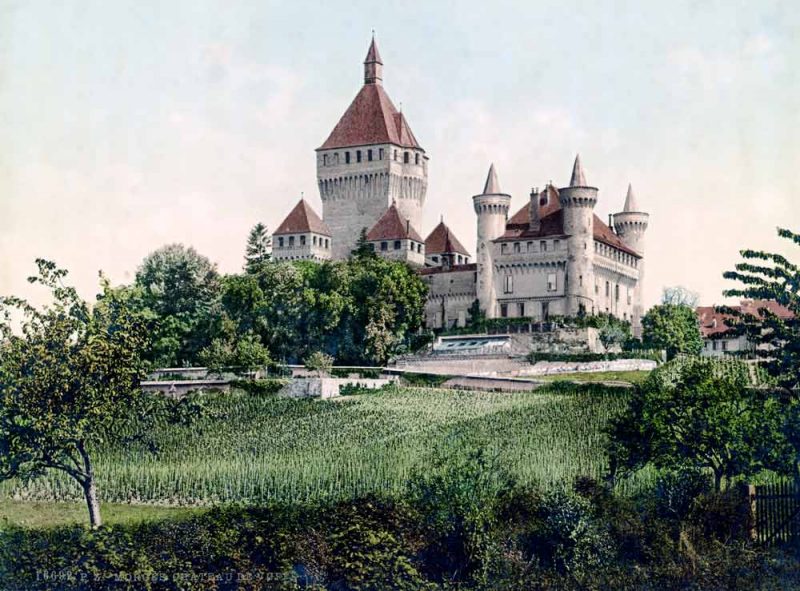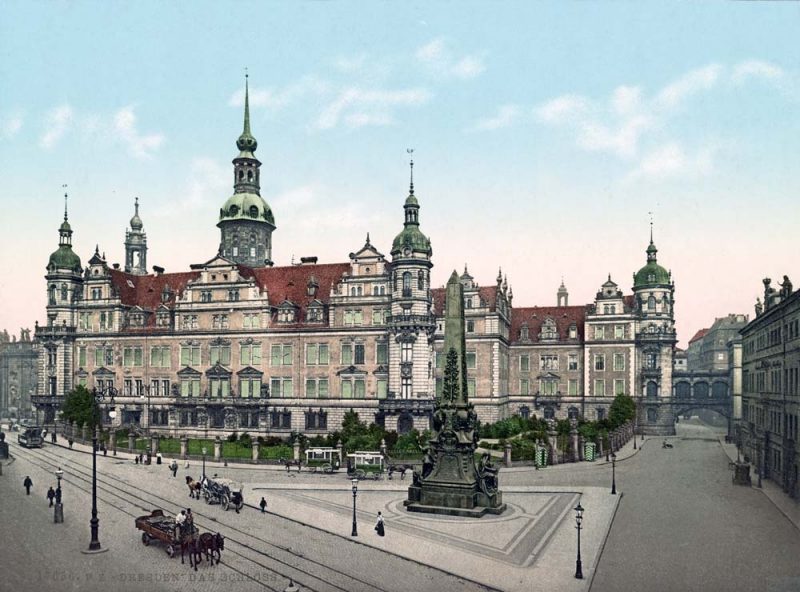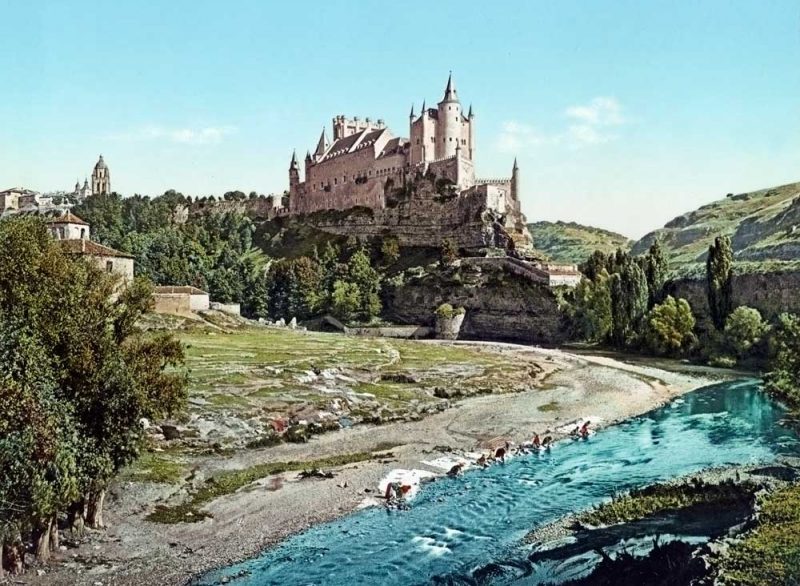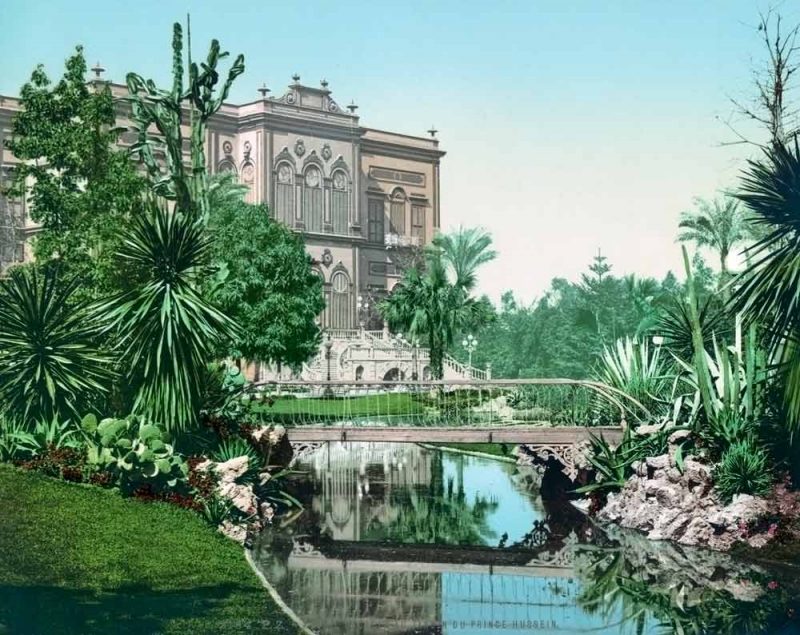The photochrome process was a technique used in the late 19th century to convert black-and-white photographs into color prints. It was mainly used to print postcards which people collected. The cards below were created between 1880 and 1900 and show castles and palaces across the world.
Castles and palaces in England
Let’s start with a world-famous place: Windsor Castle, the residence of the English royals in Berkshire county. This castle was built in the 11th century. It is today the largest still inhabited castle in the world – around 500 people are living and working in the castle.

Another castle that is important for the Royal family is Caernarfon Castle in Wales. It is on occasion the location for the investiture of the Prince of Wales, as happened in 1969 with Charles, the son of Queen Elizabeth II.

Castles and palaces in Switzerland
Vufflens Castle was built in 1425 and it is still privately owned.

Castles and palaces in Germany
Of course Schloss Neuschwanstein, built as a romantic interpretation of the Middle Ages for King Ludwig II of Bavaria, was also used for a photochrome print.

Schloss Moritzburg, near the Saxon capital Dresden, is a palace that lies on a symmetrical artificial island. Its Wikipedia page has a nice areal picture as well as an image of the Little Pheasant Castle closeby.

For the Sanssouci castle in Potsdam, I found this photochrom print showing its music room. The palace itself is not that impressive since it is only a single-story building. You’d expect to see a spinet or harp in that room but maybe the family and descendants of Frederick the Great, King of Prussia, were not that interested in playing themselves.

The Royal Palace is one of the oldest buildings in Dresden. It was badly damaged during the Allied bombing campaigns in World War II. Its restoration is still ongoing and the Schloss is nowadays used as a museum.

Castles and palaces in Spain
The Court of the Palacio de Generalife in Granada is world-famous. The palace and gardens were built at the end of the 13th century by Muhammed II, Sultan of Granada. Apparently there are some doubts over the authenticity of the reconstructed garden, but it is beautiful nonetheless.

Alcazar is the Spanish word for fortress. I immediately liked the composition of the image below, showing the fortress at Segovia. It shows the wedge-shaped castle as well as women doing the laundry in the river below. This was originally a Roman fort that was later used by the Muslims before becoming a residence of the monarchs of Castile. Nowadays it is a museum.

There don’t seem to be many photochrome prints showing the military, so this picture of horse artillery on the Plaza de Armas (parade ground) in Madrid is a nice find.

Castles and palaces of ministates
There are six European ministates and four of them are monarchies. Obviously, these royals needed a palace or fortress to overlook their tiny kingdom, so here are the ones of Monaco and Lichtenstein.


Palaces in Egypt

Palaces in China
The Summer Palace in Beijing was the imperial garden of the Qing dynasty. It was one of the surprise finds in the Library of Congres’ vast library of photochrome images.



Palaces in India
Our virtual tour ends in India with these magnificent postcards.


Interested in seeing more of these prints? Take a trip across Europe, check out the photochrome postcards from England, Ireland, Belgium, or North America or visit the photochrome prints page for more information about the process.